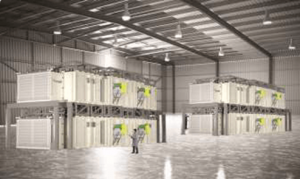World’s First Carbon-free Aluminum Smelting Process Developed in Joint Venture
An Australian-British metals and mining corporation based in London in conjunction with a Pittsburgh-based aluminum producer recently announced an innovative process to make aluminum that produces oxygen and eliminates all direct greenhouse gas emissions from the traditional smelting process.
The new venture between Rio Tinto and Alcoa Corporation, known as Elysis, to develop the process and license the technology so that it can be used to retrofit existing smelters or build new facilities. Elysis will be headquartered in Montreal with a research facility in Quebec’s Saguenay–Lac-Saint-Jean region.

When fully developed and implemented, it will eliminate direct greenhouse gas emissions from the smelting process and strengthen the closely integrated Canada-United States aluminum and manufacturing industry. The patent-protected technology, developed by Alcoa, is currently producing metal at the Alcoa Technical Center, near Pittsburgh, Pennsylvania, where the process has been operating at different scales since 2009.
“This is a revolutionary smelting process that can deliver a significant reduction in carbon emissions. It builds on the key role aluminum has to play in driving human progress, by making products infinitely recyclable, stronger, lighter and more fuel efficient,” said Rio Tinto chief executive J-S Jacques.
Vincent Christ, who brings more than 30 years’ experience at Rio Tinto Aluminium, has been named Chief Executive Officer of Elysis.
Photo credit and caption: Rio Tinto; employee at the Saguenay–Lac-Saint-Jean works
World’s First Carbon-free Aluminum Smelting Process Developed in Joint Venture Read More »








